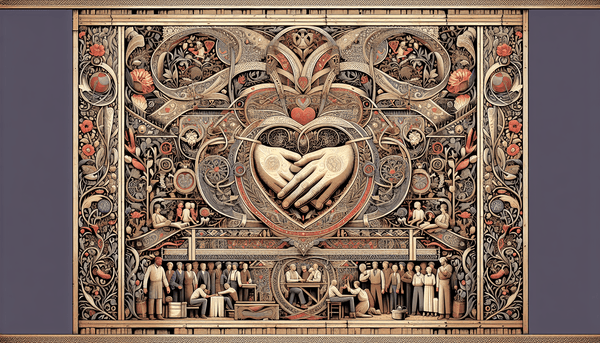The Holy Trinity Explained
Understanding the Trinity is foundational to Christian belief. It's the recognition of one God in three persons: the Father, the Son (Jesus Christ), and the Holy Spirit. Though the term 'Trinity' itself is not found in the Bible, the concept is woven throughout its narrative. At Jesus' baptism in Matthew 3:16-17, the Holy Spirit descends like a dove while the Father's voice affirms Jesus as His Son, illustrating their distinct roles yet united purpose. The Apostle Paul echoes this triune fellowship in 2 Corinthians 13:14, where he speaks of the 'grace of the Lord Jesus Christ, the love of God, and the fellowship of the Holy Spirit.' Similarly, 1 Peter 1:2 speaks to the foreknowledge of God the Father, sanctification by the Spirit, and obedience to Jesus Christ. These passages, among others, provide a scriptural foundation for the Trinity, a truth that profoundly influences Christian worship, prayer, and understanding of God’s nature as a relational being.
The Role of Baptism in Christianity
Baptism holds a significant place in Christian practice, serving as an outward expression of inward faith. Jesus' instruction in Matthew 28:19 to baptize 'in the name of the Father and of the Son and of the Holy Spirit' highlights its importance in the Christian faith. This ritual symbolizes a believer's death to sin and resurrection to new life in Christ, as depicted in Romans 6:3-4. While views on baptism can vary among different denominations, its common thread as a public declaration of faith is undisputed. Baptism is more than a ritual; it is a personal step in one’s faith journey, reflecting a commitment to follow Christ and a recognition of being cleansed and renewed by His grace.
Conversion to Christianity: A Personal Journey
Embracing Christianity is a deeply personal journey that begins with understanding its teachings. The Bible encourages this exploration, as the Bereans did in Acts 17:11, examining the Scriptures daily to understand the truth. Conversion often involves guidance from pastors and mentors, mirroring the discipleship seen in the early church. As individuals consider the message of salvation, as expressed in John 3:16 and Romans 10:9, they embark on a path of prayer and personal reflection to sincerely seek God. This journey is marked by a transformative process, where one becomes a new creation in Christ, as described in 2 Corinthians 5:17, and experiences the cleansing power of forgiveness outlined in 1 John 1:9.






